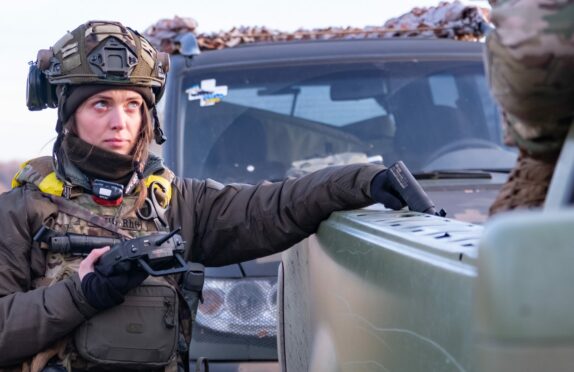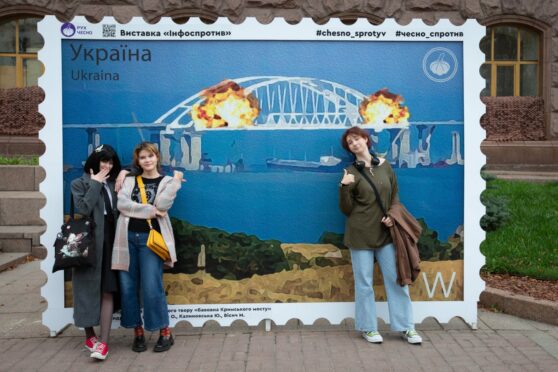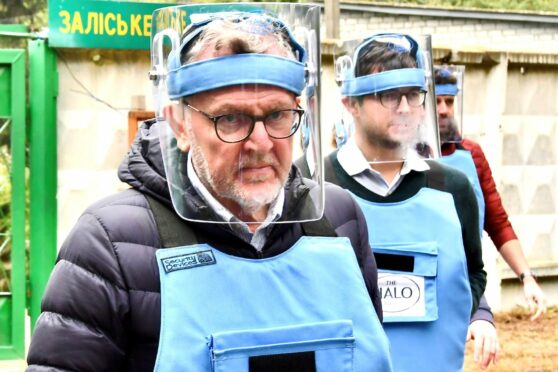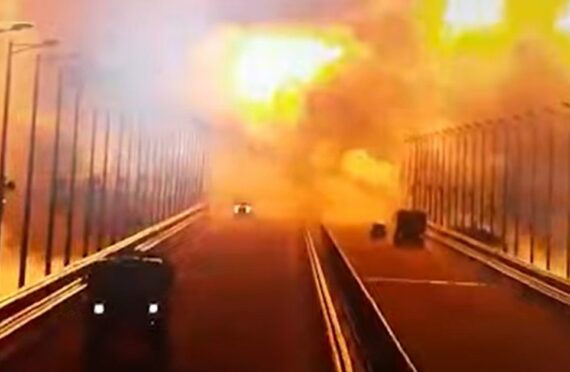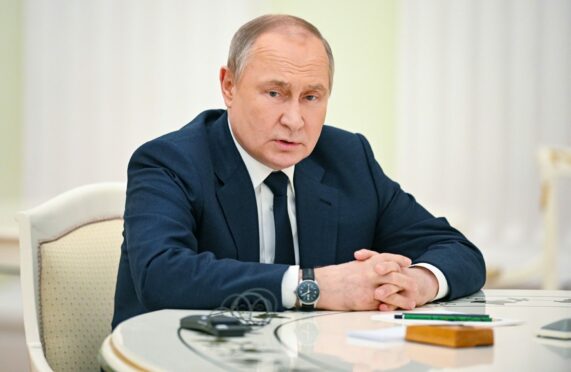
Russia has stalled in the Ukraine conflict but nuclear war remains a risk, according to a leading security expert.
Professor Malcolm Chalmers, deputy director-general of the Royal United Services Institute, said Vladimir Putin could escalate his campaign if he faced further military and strategic losses.
Chalmers said that a deteriorating situation could leave leaders with a scenario that “would feel like the Cuban Missile Crisis on steroids”.
He said: “It is now increasingly plausible that the next period will see Ukraine reversing most of Russia’s recent territorial gains, including Kherson and even Mariupol.
“Given the frequency with which Russia’s leaders have issued nuclear threats, it might have to resort to ‘risky signalling’ in order to demonstrate that, this time, it was serious.
“This could include the surging of missile submarines and road-mobile missiles, the removal of non-strategic warheads from central storage sites and moving military commanders to protected underground bunkers.”
Putin has refused to rule out nuclear weapons and Chalmers added: “It is hard to imagine that Russia will issue such a threat in current circumstances, when Nato forces are not fighting Russian forces, and when the destruction and disarmament of Russia itself is not on the agenda.
“But this could rapidly change in the event of escalation to a war which threatened the defeat of Russia’s military by Nato, with all that this could mean for the survival of its authoritarian political system.
“If it did come to this, operational pressure for preventive attacks on one side, and growing public panic on the other, would place a premium on leaders taking the right decisions at the right time in conditions of imperfect information and high emotions.
“It would feel like the Cuban Missile Crisis on steroids.”

Enjoy the convenience of having The Sunday Post delivered as a digital ePaper straight to your smartphone, tablet or computer.
Subscribe for only £5.49 a month and enjoy all the benefits of the printed paper as a digital replica.
Subscribe